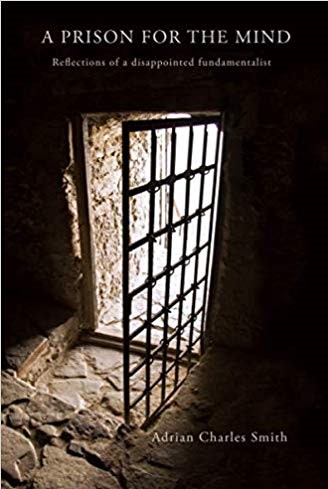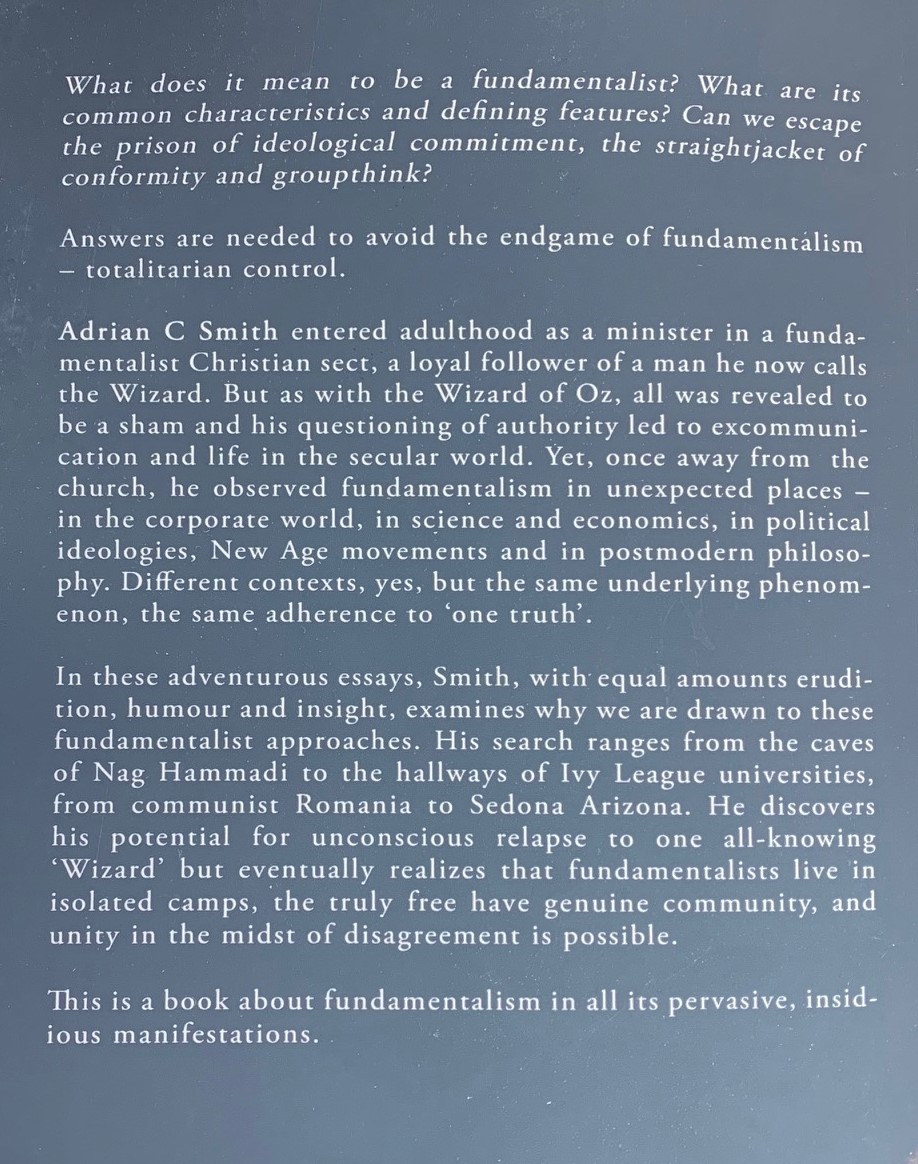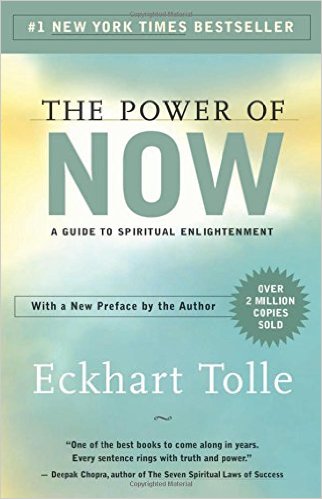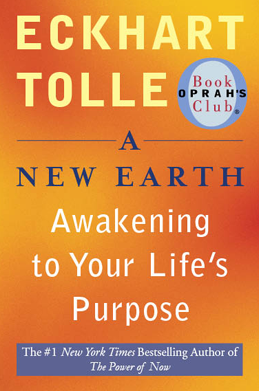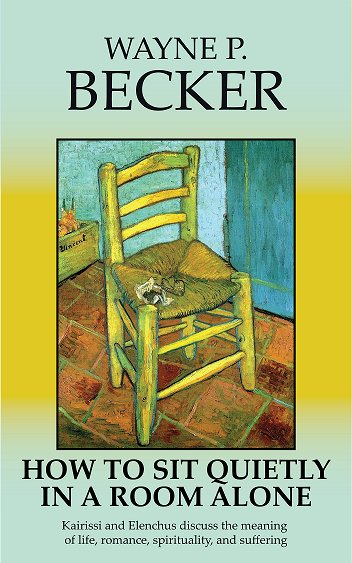|
Word Gems
exploring self-realization, sacred personhood, and full humanity
Editor's 1-Minute Essay:
Spirituality, Part III
Swan Rising In Dazzling Sunlight:
Becoming Who You Were Meant To Be
return to "Spirituality" main-page
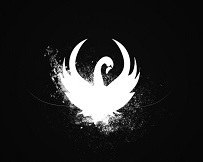
Every religious organization, explicitly or implicitly, offers the promise of “becoming a better person.” This transformation, they say, will come to us by believing the right doctrines, following the right guru, obeying the right rules, saying the right prayers, hallowing the right holy day, receiving the right magic hand-sign blessing, observing the right rituals. We could go on.
But why do we need to “become a better person”? Well, silly question – "Man fell from grace," they say. "Adam sinned in the Garden." As a result of this ancient infraction, something happened to our whole species, DNA was contaminated right down at the core of being, and all babies born since then have been tainted by what primordial parents did.
I see.
Lamarck, the new come-back kid, but only in church where obsolete ideas thrive
But I thought Lamarckian theory had been discredited (recall biology class and the "neck of the giraffe"). Is the experience of a forefather – indeed, a purported guilt – shuffled on to offspring?
Editor's note: Actually, Lamarck indirectly makes a big come-back via epigenesis. See the "Evolution" article.
who's responsible for this mess
But, without conceding this Lamarckian point, is not the larger issue here one of imputed slipshod workmanship on the part of God? What are we to make of a “God” who, they say, brings into being a new creature, an inexperienced, immature, and shiny-faced Adam, only to have Man, shortly thereafter, officially condemned as unfit, even reprehensible, having – what’s the word? – sinned. Sounds like a mad-hatter kangaroo court to me; sounds like "snowballs in July, Doc."
blaming the product, not the manufacturer, for sloppy and cheap workmanship
When a product is discovered to be defective, when quality standards are lacking, when cheap materials are used, we blame the manufacturer, we hold him liable -- not the product. How absurd to blame the product! All reasonable and civilized people will agree on this patently obvious point of common wisdom.
If newly-minted Adam "sinned" -- a creature so innocent that he didn't even know he was naked -- should this not reveal more about the "Manufacturer" than the so-called defective product?
Not all religious organizations speak of Adam and from a biblical perspective, but virtually all of them, in some form or another, will insist that you need enhancement, something added, that you need upgrading, a make-over, which restructuring, they say, must be supervised by some sort of an elite priesthood. Without them, they modestly suggest, “God” -- a diseased view of God -- could never love you enough, and therefore you will languish forever in your innate defective state, never to be allowed entrance to heaven/nirvana/elysian fields/empyreal reward/beatific vision/golden throne-room, or whatever term is used for eternal bliss.
But this is just fake news by those who stand to lose much by your clear thinking, critical assessment, and enlightenment.

We need better information, an accurate view of human nature, and we need to separate ourselves from collective-ego institutions, posing as legitimate teachers but with agendas contrary to our well being and best interests.
|
the Nice Young Man at Church: menace both to society and to himself
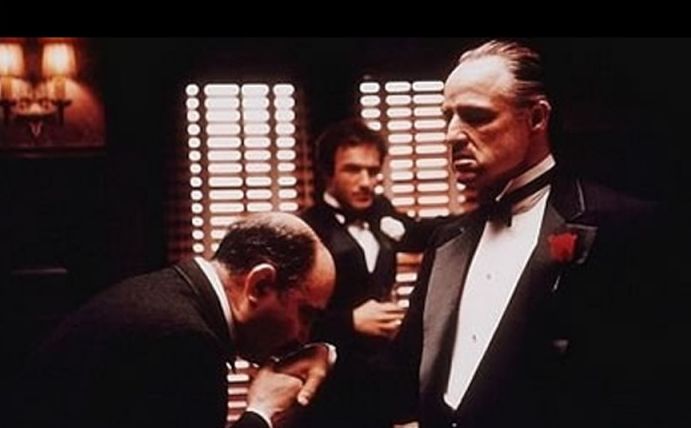
My father-in-law – a good man, now departed – had been in the habit, a long time ago, of creating a special fruit-plate, quite ornate and decorative, his offering to the after-church fellowship meal. However, every week, the clergy would wisk-away this edible artwork, through one-way doors, to the exclusive ministers’ lounge.
This bothered Dad no end. He wanted everyone to enjoy his handiwork, not just an elite few. Eventually, he just stopped making any of it. The pious confiscation had became a kind of tax on Dad’s work, and whatever you tax you get less production – an ancient economic precept unappreciated by the bloated ecclesiastical bureaucrats. They believed that they alone deserved the choicest goodies.
One of the great tragedies of society is the high-mightiness, the holier-than-thou spirit, among those who should be least affected by swaggering overbearance. The “Nice Young Man at Church,” as I am wont to call him, during his training, is carefully schooled in hubris and swelling pride. I speak from experience. At bible college, a “ministerial West Point,” we flattered ourselves to imagine, the budding pastors-to-be as potentates, were told that God had appointed us to look after his wayward sheep; that, we, the elite and hand-chosen, represented God on Earth; that, with all of our specialized biblical knowledge, we alone were qualified to answer questions on how to live and how to die. Little wonder then, so many of us were infected by poisonous totalitarian mindset. We were “above”; we deserved the honor and the chief seat; we were God’s agents on Earth.
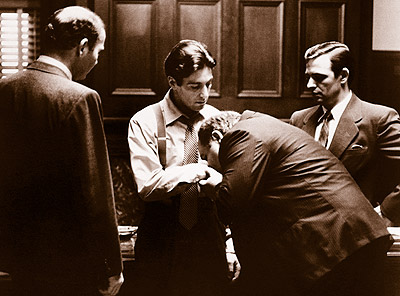
So many friends from that time suffer under delusions of “godfather grandeur”; some of them became hard-core, vicious totalitarians, and some were smiling “nice guy” totalitarians, but, as Shakespeare might have reflected upon "The Nice Young Man," it's quite possible to "smile and smile" while playing the role of manipulative nice-guy "villain."
Spirit-Guide Abu offers testimony of his life as an Egyptian temple-priest of 3500 years ago and says that it was the exact same thing back then. They really thought they were God’s gift to the world, and were damaged by this inflation. Abu ended up in a dark rat-cellar, for a long time, when he crossed over. Similarly, I've read other-side reports asserting that the great religious leaders of a famous church, virtually every one of them, languish in a sewer-environment on the lower levels in the Dark Realms. They could leave today but their disdainful haughtiness sees repentance as something beneath them. Noxious pride has driven them quite insane.
The real, the authentic, spiritual leaders are deeply troubled by this charade and caricature of godliness. Recall Brother John of Glastonbury’s comment, “We of the Spirit World are appalled” by the poisonous pride of so-called God’s servants.
Coming to mind just now, too, is an incident when I was 17. My father, unable to deal with the rising tide of my knowledge concerning these matters, hauled me before the local priest to “talk some sense into me.” This man, a true godfather-figure, was one of the most imperious and evil people I would meet in my life. He had totally bought into the notion that he was “better” and “chosen.” I knew that if he’d had the power to do so, he would have killed me for my insolence of questioning his “superior” wisdom as representative of "God's" venerable, ancient organization. And who was I, I still recall him gloating, to question any of this? But every sneering and smug despot of history has entertained this kind of disdainful and contemptuous self-importance.
However, this very moment, so long after the fact, I smile inwardly to assess the irony. If he had been reasonable, willing to engage me respectfully and intellectually, I might have stayed in the fold. Instead – and I still remember my silent rage and seething fury under his godfather-insults and fulmination – I promised myself, right then and there, at that moment of his empty-bluster attack, that I would grow up to become among the most knowledgeable in the world, I would become an expert, I would get the facts as had few others concerning these issues -- and no one would ever again be able to speak to me in such venomous and hateful manner, and that I would never again allow myself to be subjected to this kind of inquisitorial, witch-hunt abuse, even under pain of death.
(sighing) Well, today, nearly 60 years later, I’ve had some time to calm down, sort of, it took awhile, and I realize what happened to this poor little pompous person, so threatened by a boy's questions. He’d been fed a line that he was anointed, ordained, chosen, “above,” and, like so many other “servants of God,” he drank the kool-aid and believed his own propaganda; in this long-standing infatuation, he just couldn't get over himself.
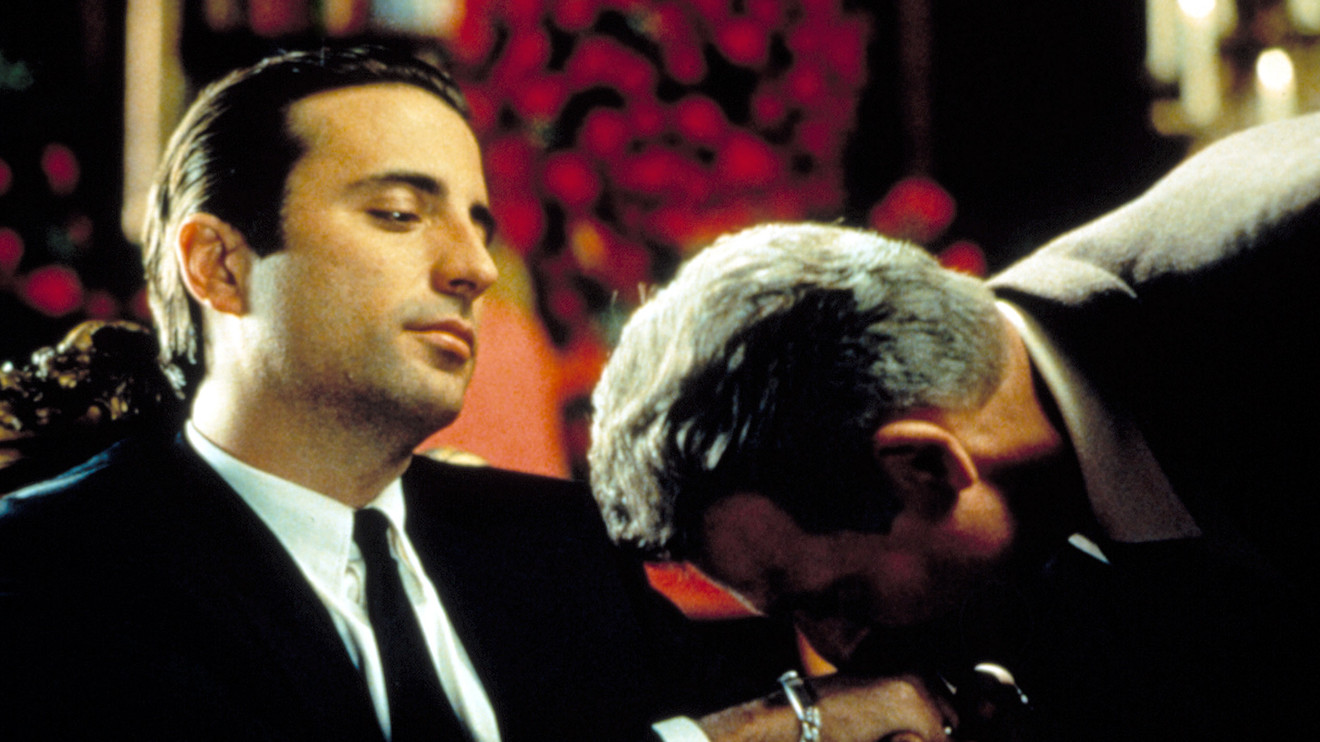
Editor's note: One of my long-time Word Gems readers, when she read about my above "silent vow" while being attacked by a Blackrobe, joked with me and said, "He created a monster." It's one of the best compliments I've ever received. (smile)
|
|
the endgame of all forms of fundamentalism is totalitarian control
Editor's note:
Adrian's new book, "A Prison For The Mind," is available on Amazon. His assessment is correct: "the endgame of" all forms "of fundamentalism" is "totalitarian control."
Why is this so? The needy dysfunctional ego, in its writhings of "I am not enough," cannot help itself but to reach for greater heights of power.
See references to and examples of Adrian's writings on the Cultism, Ultimate Reality, Wedding Song: Foreword, and Perfect Mate: Foreword pages.
|
|
noble sentiment, but just a legal fiction; you can't really cash it at the bank
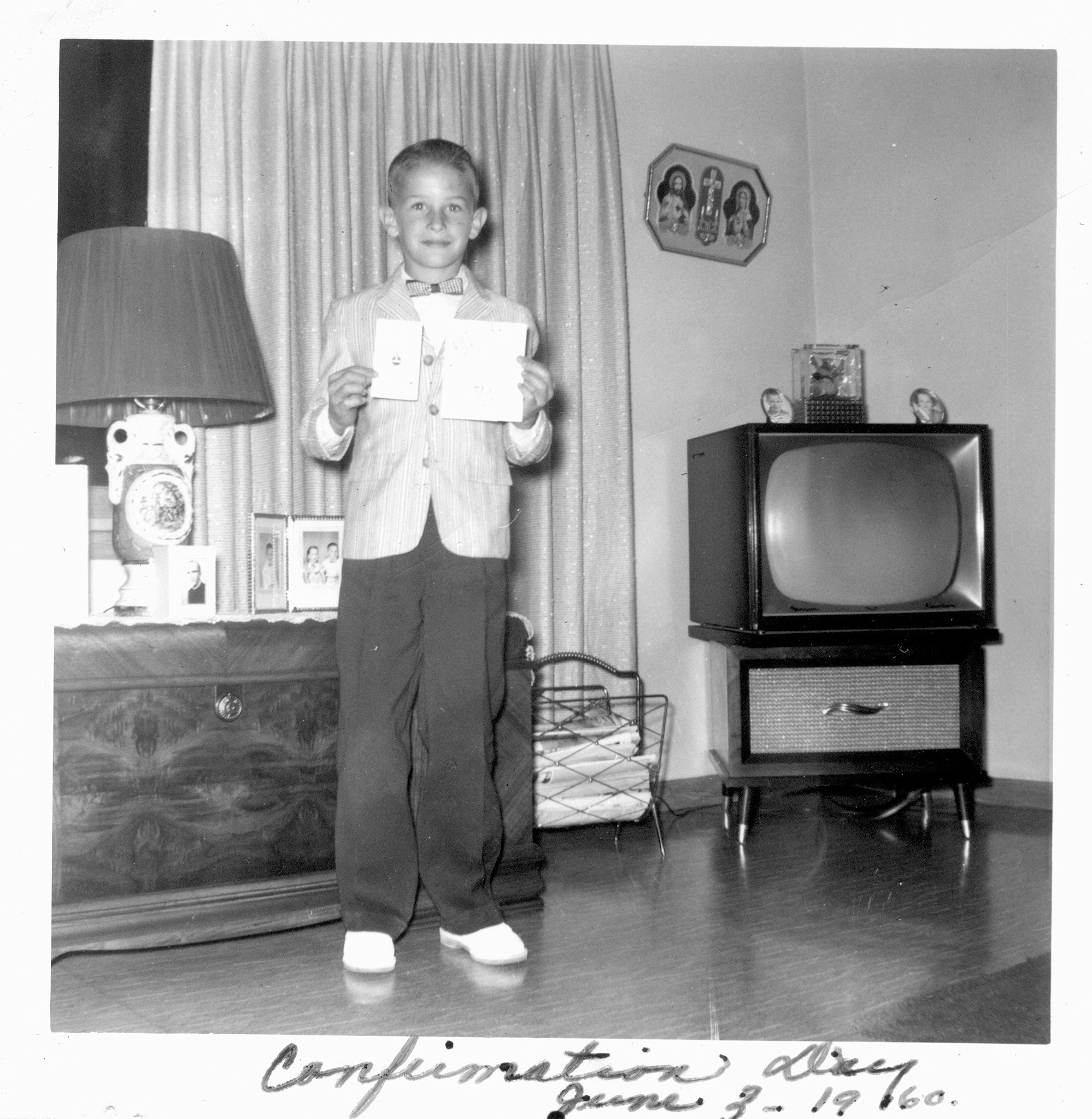
How 1950s-ish is the old farmhouse living room. We might expect Doris Day to waltz in any moment. And see our very first tv, resting on a swivel-top, strategically pointed toward the kitchen, allowing Dad to watch Gunsmoke during supper. And how do you like that hard-surface, reflective, linoleum flooring? Anyway, as Mom's caption denotes, it's Confirmation Day (not Doris Day), June 3, 1960. I’m a tender and guileless eight year-old kid, almost nine, and how beaming I am today. Dr. Ernest Becker’s “oceanic security” comes to mind. All is well with my little world because I have pleased God with partaking in church ritual. In this triumphant moment of duty satisfied, I am flanked, to the left, by my cousin-the-priest's imposing photo, center-positioned atop a walnut hope-chest; and, to the right, by a humorless and severe religious icon, high on the wall, standing sentinel over the true-believing family. My jacket, a size too small; my pants, a bit too baggy; my bow-tie, a little too tight (I can't believe they got me to wear a bow-tie); but, in any case, I feel smartly attired with my brand-new Sears-catalogue Pat-Boone "white bucks" adorning this festive occasion (Aunt Alice said she really liked them a lot). And, most importantly, I am holding, in my young farmboy calloused hands, a gilt-edged, embossed, auspicious document, my "confirmation certificate-of-participation," festooned, top to bottom, with indecipherable and runic ecclesiastical symbols; even more impressive, signed by such august personage no less than the Bishop himself, who'd traveled all the way from Fargo just for this special day -- the confluence of such wonder offering evidence, especially to me, that, like Bobby Tracey, I have been very good, very obedient, have kept the rules, and that now -- as I've been assured – I am a better person, a good person, with God himself officially loving and accepting this sincere little boy substantially more than he did only hours before.
In my article “Why Is World Peace So Elusive?” I address the problem of “becoming a better person” with a larger field in view. Most of the world’s population engages in some form of religious activity. We have been wafered, sprinkled, blessed, redeemed, prayed over, absolved, confirmed, saved, catechized, and otherwise sanctified – and yet this planet’s inhabitants come no closer to “becoming better persons.”
Eventually, in disillusionment, we learn that a “confirmation certificate-of-participation,” while representing a noble ideal and sentiment, is but legal fiction. It cannot take us to where we want to go. It cannot give us what we crave. It will not defend against the existential crisis of “I am not enough.” It will not create the better person. We must go deeper.
|

Swan Rising In Dazzling Sunlight:
Becoming Who You Were Meant To Be
hey, buddy, when I go to all the trouble of asking for healing, the least you can do is give me my money’s worth
From my biblical studies as a young man, I recall – I won’t look it up – a mythical story, in the Book Of Kings, of a man who suffered from leprosy. He made a trip to speak with a prophet of God, hoping to receive divine healing.
The suffering man was prepared, so to speak, to perform the “12 labors of Hercules” in order to be healed. He'd do anything to get his life back. And so when the prophet told him, “Ok, then, just go and wash yourself in that river over there and you’ll be right,” the fellow was very offended. In effect, he said, ‘I came all this way in hopes of some dramatic healing, was prepared to work hard and huff-and-puff to make it happen, and now you tell me to just wash in the river?!”
He wanted the sizzle more than the steak. He wanted pageantry and glitz, the heavens opening, angels singing, with doves bringing him a golden scroll, and he became angry when he didn’t get the drama. The prophet, a wise man, sensing a vacuity of spirit, gently chided the leper with, “If I had told you to do some super-human feat, you would have done it. So why don’t you just be a good sport now and take advantage of my simple offer and just wash in the **** river?”
|
you reject the possibility
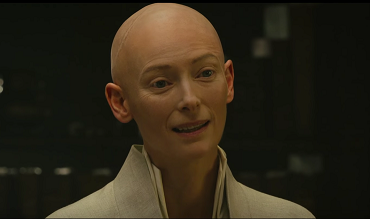
Doctor Strange (2016), The Ancient One (Tilda Swinton)
“You're a man who's looking at the world through a keyhole, and you spent your whole life trying to widen that keyhole, to see more, know more. And now, on hearing that it can be widened in ways you can't imagine, you reject the possibility.”
|
The fellow calmed down, had nothing better to do and nothing to lose so he washed himself in the river, not expecting too much – and then he was healed. "Go figure," he said.
Are there other "healings" in life which might also come to us without dramatic effort and fanfare?
what are you willing to do to become a better person -- not much, I hope
According to your friendly local religious establishment, there’s a lot you have to do to become a better person. I mean, it’s a long list – think of the discussion above – all the requisite prayers, offerings, devotions, rituals – but let’s not talk about this fake-news anymore. You get the idea.
We break out in a cold sweat just to list these requirements. And for those who've spent many years "trying very hard to be a good person," we know that, after all the work and effort, we never say to ourselves, “Well, I’ve really done enough now. I’ve pleased God, he’s all happy with me, and that’s that, and we're all done now, and I don’t feel guilty at all, I’m a good person now. End of story.” No religious person in the history of the world has ever been able to say this -- which disappointment becomes prelude to a pervasive sense of existential guilt, by which the Blackrobes will attempt to manage you.
Editor's note: Read the article about this fear-based crowd-control tactic, this guilt-as-weapon.
Strangely, in the midst of this never-sated duty, we find words attributed to Jesus, to the effect, “My burden is light. My yoke, my teaching discipline, is easy. Anyone can do it. And it won’t tire you out at all.” But we don’t hear too much of this from the Nice Young Man at Church.
|
'being' not 'doing' - we cannot work our way into a better character and spirit
Religious groups, along with humanistic secular voices, preach another avenue toward “becoming a better person.” It's the “gospel of good works,” of charitable effort and service projects.
There is nothing wrong with any of this, and we need more good works in the world; however, good works, per se, without something more, will not make us better persons. In fact, if the ego gets involved, we might end up worse for our trouble.
I discussed this issue in Spirituality: Part I.
|
the essential problem
Are we feeling slightly offended now? - like the annoyed leper standing before the river. When we hear talk like “My burden is easy and light, and anyone can do it,” do we rise up, after all the hard work we've done to be a "good person," and say, “No, it’s not easy at all, it’s not light! I’ve been trying to overcome my problems all my life, nothing's changed, and it’s really hard.”
you can't become a good person, because you're already a good person
Here is the essential problem: You can’t become a good person because you already are a good person. Right now, this moment, you are as “good” as you will ever be, even a million years from now when you’re an advanced Spirit Being in Summerland.
We were “created in the image.” We have the spark of godhood, of divinity, built right into the fibers of our being. We cannot be “better” than that. There is no “becoming better” for us, in any absolute or innate sense. This is not possible.
Then what?
Our problem is not one of "becoming good" or “becoming better” but of gaining consciousness and awareness of what we have right now, of what we are on the deep inside. This is the task before us, one of “opening our eyes” to the reality of what we are, and what we've been given.
You will want to study, and clearly understand, the metaphors of the “true self” and the “false self.” Recall from other writings that “enlightenment,” by way of analogy, is perceiving that the Sun still shines, always shines, far above the clouds, no matter how dark it gets at the surface of life and personhood. The “Sun” is our “true self,” made perfect and whole, and the clouds are the “false self” which block the radiance of what we truly and eternally are.
If “becoming a better person” has any meaning for us, it’s that of better awareness, better cognizance, of our true essential natures. When enlightenment comes, we automatically change our conduct and lifestyle. Old vices, like anger, which may have plagued us since childhood, begin to atrophy and wither and are sloughed away. No effort required.
It happens in a natural and easy process – just as the words of Jesus had it. And all we have to do, in our own easy directive to “wash in the river,” is to mentally shine a spotlight of awareness on both the vice and the inner true self. Just "simply notice." That's it. No big deal. Over time, the vices will just dry up. Light is the best disinfectant. The vices can't survive in an environment of the inner spotlight-glare!
And it will be as Jesus said, “What me worry. No problemo. I told you you were fine." Most of what we call vices are nothing but psychological defense mechanisms, long used by the false-self for safety and comfort. But if you expose the machinations of the false-self, all the "games that people play" to avoid reality, if you tear away the protective coverings of self-delusion by shining a spotlight of consciousness on them, then guess what, the so-called vices begin to evaporate. When you begin to truly sense that "I am enough," then there's nothing to egoically seek for anymore.
how to mentally shine the spotlight of awareness
What are the practical things one must do to gain awareness? There are best techniques and practices, and there are good teachers who offer advice on the process. My recommendation is to carefully study these books:
The good instruction for us is counter-intuitive, in that, it runs against the grain of what we’ve been taught all of our lives. We are not intrinsically flawed beings needing salvation. We do not require a third-party savior to rescue us. We are not defective creatures, even little babies, needing a make-over. We have not "sinned" and were not "born in sin" -- what a disgusting "infallible" church doctrine...

and he's not even sorry
Instead, we need to come into realization of what we’ve been given and what is ours by right and heritage; that is, as a son or daughter of God.
what I’ve personally learned
The above books will offer advice in detail. But allow me to give a very brief account of what needs to be done. Brevity could be interpreted as indication of something not important; this assessment, however, would be a mistake. Quite frankly, this subject of how to “mentally shine the inner spotlight of awareness” is so incredibly important that few other topics can rival its priority. This acknowledged, my brief instructions will seem so inconsequential, almost a “nothing.” And so, as I see it, the danger becomes, “will we wash in the river”? -- because it seems too insubstantial. Nevertheless, here is what I’ve learned, by experience, to be extremely efficacious in terms of growing in awareness:
Deep breathing exercises: We might imagine this to take a long time each day if it’s going to be worth anything. But no. If you do the breathing exercises for 30 seconds, or one or two minutes, each day, the accretive benefit to your awareness will be very meaningful.
What kind of deep breathing? The books tell you how. But, essentially, you need to feel and sense your “inner body,” that is, the “energy centers,” within. The effect will issue as becoming aware of awareness itself. It is to know oneself, the "true self," via a monitoring background presence to the thoughts in the mind and the energies of the body. Cool eh?
Why is this important? In this process you will become aware of “foreign,” negative, anti-humanistic energies when they accost and invade you. Think of the saying, "There's a disturbance in the Force." It is like that. You will begin to recognize what's true and real, what's of God and what's of the ego; you will begin to "test the spirits," to discern, weigh, and winnow, "even to the dividing of soul and spirit," as the Bible puts it. It will be like a new "sixth sense" for you.
None of this is exaggerated or hyperbole. All this is extremely important, and no words here can emphasize enough. After you’ve instructed yourself in this way, over the months and years, you will recognize certain egoic teachings of the world to be harmful, which others might praise as wonderful but, in fact, are toxic to one’s spiritual essence and well-being. What I’ve just attempted to explain will be unknowable, indecipherable, and misunderstood, for now, by those who’ve not yet entered this process.
|
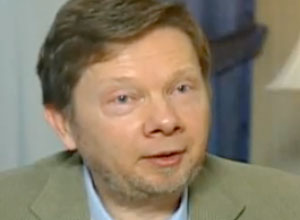
an excerpt from Eckhart Tolle's "The New Earth"
more powerfully transformative than 100 seminars and workshops
Discover inner space by creating gaps in the stream of thinking.
Without those gaps, your thinking becomes repetitive, uninspired, devoid of any creative spark, which is how it still is for most people on the planet.
You don't need to be concerned with the duration of those gaps. A few seconds is good enough. Gradually, they will lengthen by themselves, without any effort on your part. More important than their length is to bring them in
frequently so that your daily activities and your stream of thinking become interspersed with space.
Someone recently showed me the annual prospectus of a large spiritual organization. When I looked through it, I was impressed by the wide choice of interesting seminars and workshops. It reminded me of a smorgasbord, one of those Scandinavian buffets where you can take your pick from a huge variety of enticing dishes.
The person asked me whether I could recommend one or two courses. “I don't know,” I said. “They all look so interesting. But I do know this,” I added. “Be aware of your breathing as often as you are able, whenever you remember. Do that for one year, and it will be more powerfully transformative than attending all of these courses...”
Being aware of your breathing takes attention away from thinking and creates space. It is one way of generating consciousness. Although the fullness of consciousness is already there as the unmanifested, we are here to bring consciousness into this dimension... One conscious
breath is enough to make some space where before there was the uninterrupted succession of one thought after another.
Editor’s note: In an online discussion I added this:
Daily deep breathing, be it only 60 seconds, will be more powerfully transformative than attending 100 seminars or 100 church services.
Why is this so? It stops the “monkey mind,” the chattering in the head. And why is it so important to stop the monkey mind? The monkey mind is the voice of the dysfunctional ego which attempts to convince us, “I don’t have enough” because “I am not enough.”
Stopping the monkey mind, even a brief daily meditation of 60 seconds, over the months, allows us to realign our inner selves, attune ourselves, to Universal Intelligence. And that’s all anybody needs, today or a million years from now.
|
Editor’s note: Years later I would realize that deep breathing is not necessary to effect enlightenment. It won’t do you any harm, and it’s like “training wheels,” but something else is in play. I discuss this better view in other articles.
Following bad feelings “down the rabbit-hole”: The first point above of deep breathing, of discovering the “inner body” energies, and the "monitoring presence," is very important. But, if that’s all you do, you will remain bereft of other, even more vital points of understanding. Here’s what you need to do:
Every day some form of negative energy invades our spirits. It might be a bad memory from the past. Typically, in our unenlightened state, we will immediately try to run away from these bad memories. We’ll repress them. We’ll try to distract ourselves with all sorts of activities or vices, such as drinking, drugs, shopping, movies, on and on. We get the idea.
But now, if our goal is to increase awareness, we must do the opposite. Now, when a bad memory comes, instead of running away, invite it in for a cup of tea. Just relax and mentally “observe” it. Float in it. Simply notice. Taste and see what it’s made of. Don’t get mad, don’t try to defend yourself, don't identify with the bad feeling making yourself a "victim," just relax and float in the bad feeling of the memory.
And when I say “follow it down the rabbit-hole,” I mean, allow yourself to explore the origins of the bad feeling. In the past, we were not able to do this because it was too frightening for us to “face our demons” this way, but now, unafraid, we allow ourselves to “follow the bread-crumbs,” adventuring with ourselves to determine just what this bad feeling is made of.
Open the long-barred, heavily pad-locked doors of your mind and heart. Dare to investigate the losses and griefs of your life. Don't defend yourself anymore. Just float in the energy of the bad vibes. Simply notice. Initially, this will seem frightening. But stay with it, don't let the horse throw you, follow it all the way to the basement of the hall-of-horrors. If you do this, the benefits, in terms of increased awareness will be utterly enormous, far beyond calculation. We have no idea how much we have been repressing ourselves.
|
Dr. Carl Jung: “Knowing your own darkness is the best method for dealing with the darkness of other people. One does not become enlightened by imagining figures of light, but by making the darkness conscious. The most terrifying thing is to accept oneself completely. Your visions will become clear only when you can look into your own heart. Who looks outside, dreams; who looks inside, awakes.”
Editor's note: Jung, in his own words, expresses Jesus' teaching of "first remove the beam in your own eye, and then you will see clearly to remove the speck in your brother's eye."
|
|
a mature spirituality will be founded upon, not just the ‘true self,’ not merely the perception of light and goodness within but, an acknowledgement of the ‘false self,’ the heart of darkness, the seeds of evil, within each human being
The following channeled testimony was facilitated by the mediumship of Mrs. Elizabeth Sweet, as reported in “The Future Life” (1855).
A guide conducts an immature spirit-person on a tour of the Dark Realms. It’s not a pleasant experience and the younger one wants to turn back:
you need to be willing to observe your own dark side
“There was no feeling of joy at my heart—no anxious hope, but a dull, heavy sensation pervaded my entire brain, and I said to my guide, ‘Let us return; these regions are not the abode of happy spirits, because, instead of warming or exhilarating my frame by their near approach, they chill and subdue me.’ My guide said, 'Nay, thou didst wish to look into things pertaining to the eternal welfare and destiny of man. Why, then, art thou unwilling to look upon the dark side? because there thou mayest learn as much of wisdom for thy spirit's strength, as thou couldst gain by gazing upon the holy beauty, which thou art not yet prepared to enter.’”
|
|
music makes you feel a feeling...

Music, especially the music of one's early life, seems to have the ability, if we allow it, to open locked doors of the mind as nothing else. It worked this way for me.
"Words make you think a thought. Music makes you feel a feeling. A song makes you feel a thought." Yipsel Harburg
|
|
Big Religion became the most powerful institution in the Western world by manipulating the fear of death, thereby controlling whole continents and civilizations
Dr. Bernardo Kastrup, PhD philosophy, PhD computer science, interviewed by Beshara Magazine:
“[Scientific] materialism didn’t become mainstream without reason. One of its biggest advantages is that in one fell swoop it eliminated the biggest fear humanity has had throughout its history, which is: what are we going to experience after we die? In Christian terms, are we going to go to hell? This fear has dominated human life to the point that the Church could control whole continents and civilizations and became the most powerful institution in the Western world. It is this fear that makes us feel guilty, which imbues us with anxiety and a sense of responsibility for what we do. But if we don’t believe in anything beyond material existence, we don’t need to worry.”
|
|
Lateece and the "madness maddened"
In “Prometheus,” Lateece, an advanced and ancient Spirit Guide, shared a story about her early years when she was afflicted with the “madness maddened.
A wholly unexpected benefit of “following down the rabbit-hole” our terrors of the past is that of experiencing the “madness maddened.”
What does this mean? I must apologize as more should be said here. This subject, among an array of important subjects, rules with a measure of hegemony. It deserves special treatment, virtually, an entire book of explanation should be written, concerning what might be viewed as a very topmost peak of self-knowledge, of sacred introspection, of “knowing thyself.”
Essentially, it works this way. If you spend some years “following the breadcrumbs,” eventually, it would seem, you will be treated to a view of yourself previously unknown. It is not pleasant sometimes, but there are few experiences in one's eternal life more maturing and edifying. It is virtually a culmination, a "PhD graduation," for the "long dark night of the soul."
In my writings, several times, I have made comments to the effect: “Every person, under sufficient provocation, in an unenlightened state, is potentially guilty of any crime, any atrocity, ever committed in history.” But we don’t believe this, do we? No, of course not, “that’s for those other people, but not the good guys – like me.” And in this self-delusion, we remain in a glassy-eyed state, utterly unaware of the power of the “false self.” This errant self-evaluation is the root of totalitarianism, of “I thank thee Lord that I am not like other men.” (see Spirituality: Part I and Part II.)
But, if we keep on “following the bread-crumbs down the rabbit-hole,” eventually, we trust, we will be given a front-row seat to what the “false self” is really like. And we won’t just “see” it, we’ll feel the “madness maddened” up close. It will seem very real. It is real; it's what's inside every human heart of darkness. We’ll momentarily gaze upon the utter and extreme insanity which overwhelms those who live on the very lowest rat-cellar levels of the Dark Realms.
To be so blessed as to experience the explosive power of ultimate evil – not in another, not on a page of history about some criminal despot, but – very close to home, in one's own heart of darkness, then, we will speak with Lateece to say that, now, we are qualified to instruct others on spiritual matters; we will have been credentialed to warn others of the horrors of consummate evil; because... we will have known it so well.
|
Does this process of "breathing" sound too jejune, too unworthy of our time and consideration? It is not. It will cause our fears of whatever bedevils us to evaporate. If we agree to “wash in the river” in this simple effort, an understanding of ourselves, over subsequent months and years, will grow exponentially.
A day will come, to your astonishment, when people who have known you all of your life will gasp in wonderment at the change in you. They will ask, "Where are your old vices?" and "What changed you?"
The truth is, the fading vices were never part of your "true self," and they naturally drifted away by the simple act of "shining a spotlight of awareness on them," allowing the "inner riches" to manifest, which were there all the time. You yourself will be largely unaware of your own progress. To you, it will be just another day in the "long dark night of the soul," with not much thought of celebration. But others will see and take note; and will marvel at what you've become.
What are the implications? They're most profound. Why does this work? Our fears have held us back, have distorted our view of reality. It means we've been existing via life-support of the "false self." But now, with aplomb and dash, instead of cringing in the dark, attacked by bad memories, we'll almost welcome them, knowing that each bad memory is another avenue of approach, another notch of victory on our belts, one more win for us, on our way to more and more awareness.
“Know thyself” said the ancient teacher at Delphi. And now we know how to do it. It's our path to “becoming a better person” – which is not “better,” as such, but just a more sighted person.
|
prayer is not meant to be gimmee-gimmee
In the paragraphs above, I drew attention to “good works,” the execution of which, people believe, will lead them to a higher state of the “good” and “spiritual” person.
However, there is a subset of “good works” which deserves special mention, the area of various religious practices, such as observance of days, tithing, fasting, and prayer. Each of these warrants investigation in order to perceive how they’ve been corrupted by Big Religion. You may want to review my article on “Prayer,” but allow me to say a few words in the present context.
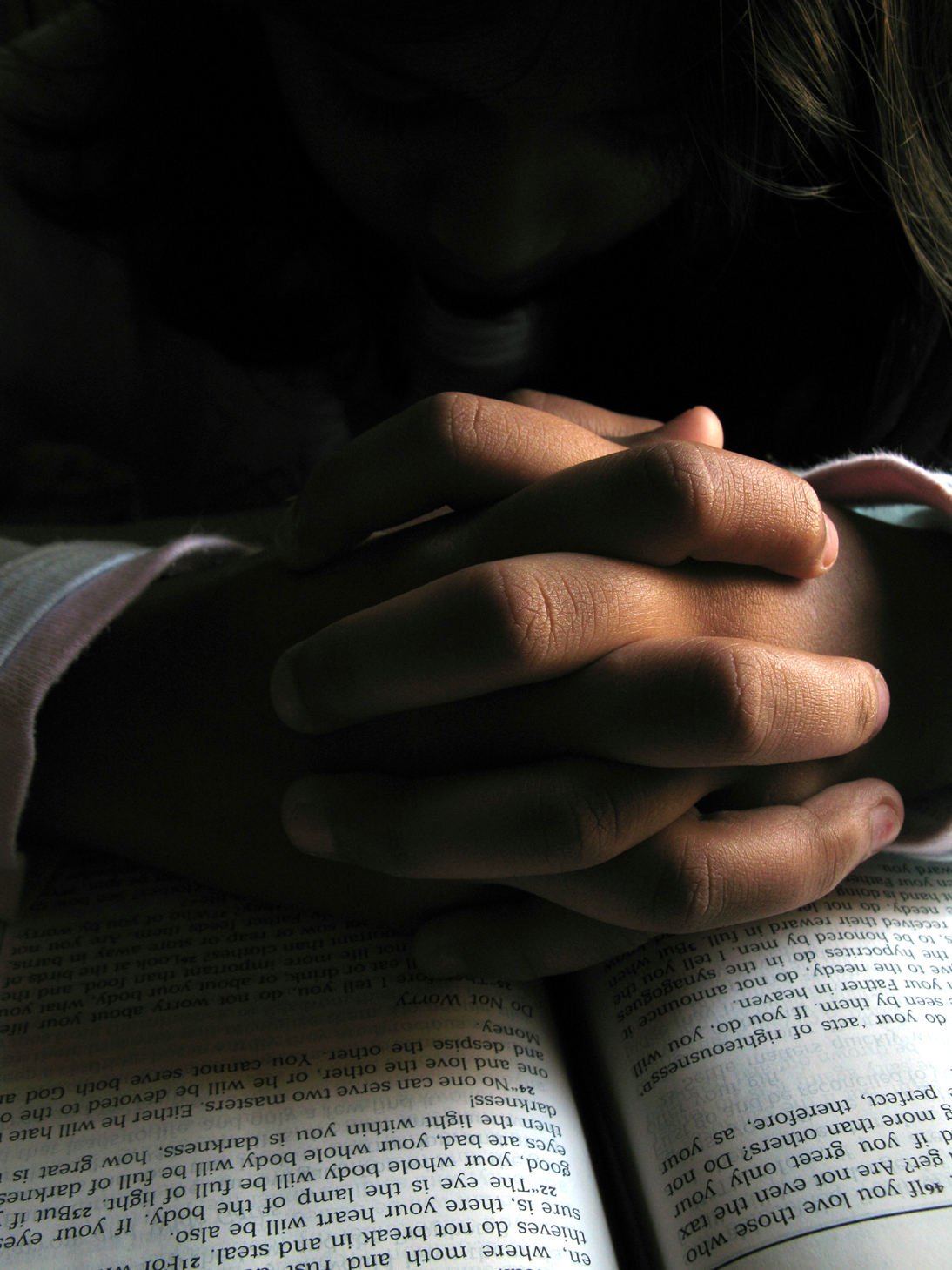
Some forms of prayer are quite toxic to our spirits. This is so because they’re not “prayer” in any meaningful sense, but just expressions of the Needy Little Me, the fearful “child within” who refuses to grow up.

Some forms of prayer are just plain defiance. We see people kneeling, a purported form of reverence and prayer, during national anthems at football games. But we all know that this form of kneeling and “prayer” is nothing more than an act of hostility and political grandstanding.
Some forms of prayer reflect an inner spirit of self-loathing, of “I am not enough,” of “woe is me, how unworthy I am.”
Some forms of prayer make one feel to be a “manager of the universe,” in that, “unless I pray for Sally, God won’t heal her; unless I pray for Mike, he won’t find a job.” As the world is filled with endless needs, it's a good way to burn yourself out.
There is a time to ask according to our needs, but the highest and best form of prayer is not “gimmee, gimmee,” a reflection of one’s perception of lack and scarcity, but simply a communion, a connectedness, with God, our Spirit Guides, and our dearest loved ones on the other side; and, in its largest scope, a union with all people and all creation.
Much could be said here. None of these forms of prayer, however – even legitimate asking -- can make you a better person. That's not what it's for. But allow me to tell you a story, a lesson from my life, what I personally learned about this.
As I young man in Bible college, I saw myself as a “soldier for Christ,” and lived a disciplined life to that end. I applied all of my German farm-boy resolve and diligence to the study of the Bible, and to prayer and fasting.
For many years, even after college, I would pray, on my knees, for an hour, or more, a day. For several years, every two weeks, I would fast for 36 hours, no water or food. On occasion I would extend the fast for a day or two. During this time of fasting, typically, I would spend the day, about 12 hours, rotating a block of three activities, an hour at a time, of prayer, meditation, and Bible study. It was a lot of very hard work.
My theory at the time was that fasting, a denial of self, would make me a better person. However, after years of such ascetic practice, I realized I was getting nowhere. Later in life, as my eyes began to open to the power of the “true self,” the “inner riches,” it became clear that the traditional forms of “gimmee” prayer – even praying for others – and of fasting, the denial of the body, in essence, devolved to a virtual worship of willpower and physical endurance, a stoical display of grit-and-grim determination, far too much emphasis on "doing" rather than "being."
There’s nothing wrong with grit and determination, and these have helped me greatly in my life, but it all goes wrong when we think that we can “work our way” into becoming a good person. If we try to do that, and I speak from experience, we’re headed for existential crisis, the great inner sense of emptiness. Eventually, it all falls apart for us.
Tolle comments that the Buddha said he made no progress in terms of accessing enlightenment during his early years of fasting and ascetic practice. It was only after he gave up the punishing of the body that he began to see clearly. And now I know exactly what he meant by that.
When Jesus spoke of "denying yourself," he wasn't talking about beating on your body but a denial of the "false self."
don't you see no matter what you do, you'll never run away from you, and girl, there's nothin' you ain't tried, to fill the emptiness inside

Kicks (1966)
|
girl, you thought you found the answer on that magic carpet ride last night, but when you wake up in the mornin' the world still gets you uptight, well, there's nothin' that you ain't tried to fill the emptiness inside, when you come back down, girl, still ain't feelin' right, and don't it seem like kicks just keep gettin' harder to find, and all your kicks ain't bringin' you peace of mind, before you find out it's too late, girl, you better get straight, no, but not with kicks...
you think you're gonna find yourself a little piece of paradise, but it ain't happened yet so, girl, you better think twice
you just need help, girl, well, you think you're gonna find yourself a little piece of paradise, but it ain't happened yet so, girl, you better think twice, don't you see no matter what you do, you'll never run away from you, and if you keep on runnin' you'll have to pay the price, and don't it seem like kicks just keep gettin' harder to find, and all your kicks ain't bringin' you peace of mind, before you find out it's too late, girl, you better get straight,
there's nothing you ain't tried, to fill the emptiness inside, and, girl, I'm gonna help you find another way
|
|
I like this from Deng Ming-Dao:
|
swan rising in dazzling sunlight: becoming who you were meant to be
|
Breakthrough
Spiritual practice must be uninterrupted. We may be anxious because we see very little happening on a daily basis, but we must be patient until we can see what the accumulation of our effort yields. Self-cultivation means steady gradual progress…
After long self-cultivation, one’s accumulated energy reaches a threshold and then bursts out, full, breathing, and vibrant… When one’s spiritual energy emerges, it feels like a swan rising from the water.

Once you have reached this level of stored energy, you will be a different person.
Deng Ming-Dao, 365 Tao
A Course In Miracles: The Holy Spirit points the way beyond the healing that it brings, and leads the mind beyond its own integration toward the paths of creation. It is at this point [when one begins to look outside of oneself, more other-centered and less needy, beyond one’s own healing,] that sufficient quantitative change occurs to produce a real qualitative shift. Editor’s note: This is an extremely important point concerning “a real qualitative shift" and mirrors the assertion of Deng Ming-Dao, "you will be a different person."
|
Robespierre, a doorknob?
Spirit-Guide Abu instructs that we come to the Earth to individuate, to become persons in our own right. He says that, in one respect, it’s like being “hatched from an egg,” a progressive opening of the eyes to reality, to increased levels of awareness and sentience.
Warner Bros. Merrie Melodies, Looney Tunes, “Booby Hatched” (1944)
Elenchus, as well, in “Omega Point,” tries to explain the ineffable, what he felt as a young "comatose" teen dancing with an aloof and angry Kairissi. As yet too unformed and inwardly chaotic, he began to understand what had happened to him only decades later. He said it was like “ice cracking” deep within his person; or maybe, like the cracking of an egg.
The difference between a spiritual and non-spiritual person is not unlike the difference between the living and the dead. We say it’s like opening the eyes, and that’s true, but it’s an opening of the eyes at one’s spiritual birth, a coming alive; it is the finger of God animating the clay-model Adam.
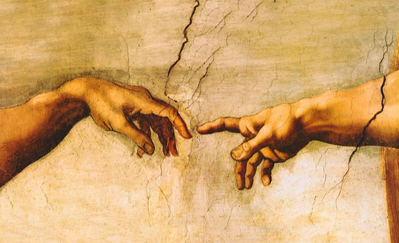
The cracking of ice, the hatching of an egg, a coming alive, an opening of the eyes at one’s birth – we struggle for the right metaphor. In my own life, as I've sometimes described it, it’s been like an “insensate worm, vaguely aware of the light,” feebly, over much time, drawn to better realization.
I once thought that my first burst of true awareness, a great mystical experience, entered my life, so unexpectedly, in the mid-1990s. But now, with more “cracking of the ice,” more “hatching of the egg,” I perceive that this process of awakening, a series of incrementally manifesting mystical experiences, has been going on since early childhood. But this is more than I knew at the time. Young boys are not famous for achieving heights of perspicacity – just ask any little girl.
Today, as an old man, just in time to die, I finally understand that certain events of my life – in 1961, 1964, 1965, 1974 – constituted severe hammer blows to “the ice” and to “the egg”; however, an evolutionary advance, one's day of birth and coming alive, for optimum health, should not be rushed, and my time for seeing clearing would await a later opportunity. A final note: Not to worry about any of this missed opportunity. The Earth is not a world designed for wishes fulfilled, but primarily is a place to "come alive." Once we become fully sentient persons, we can begin to enjoy life as we were meant to do.
|
|
Chief Black Hawk warns us that the thrill of the buffalo hunt just isn’t the same in Summerland
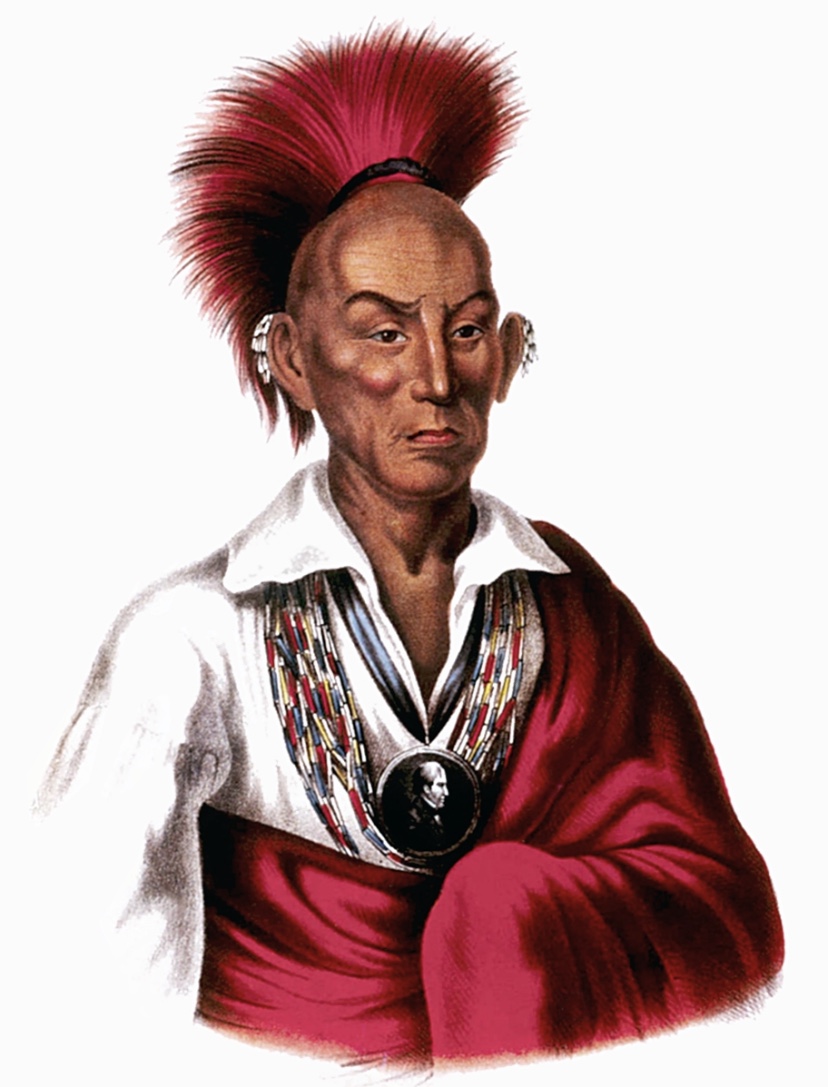
Wikipedia: Chief “Black Hawk (1767 – 1838) was a … leader and warrior of the Sauk American Indian tribe… Although he had inherited an important historic sacred bundle from his father, he was not a hereditary civil chief. Black Hawk earned his status as a war chief … by his actions: leading raiding and war parties as a young man, and a band of Sauk warriors during the Black Hawk War of 1832 [at age 65].”
The following other-side testimony is from CD #8 of the Spirit-Guide Abu taped-lecture series.
I always like the way Chief Black Hawk makes entrance to the teaching sessions: "Greetings White brother and White sister." In his humble salutation, we are stung with remorse in realization of all that we lost by not honoring the rights of the Native Americans.
From time to time, Black Hawk made guest appearances in a forum led by Guide Abu. On one occasion he answered a question about how people live their daily lives in Summerland. He begins by referencing his own people:
hunt-shoot-kill buffalo, no use
Young brave [has] no desire to develop spiritual quality. Red man has habit on Earth to hunt and chase buffalo; to fight; to worship – in Earth way. Red man [crossing over to] spirit world, for a little while, has plenty buffalo, has plenty bow and arrow – buffalo fall dead, first shot. Very good hunter. Very pleased with self – for a while. Not [interested in] developing spiritual quality, merely bring over Earth habit. Young brave, young squaw ... [will] do in spirit [world] ... in [the] beginning, what you like, in Earthly sense – to travel, to visit, to see Earth sites … a little later, whole attitude begin to change. Hunt-shoot-kill buffalo gone, no use. All [desires in Summerland] come, as you wish. The spirit of Red man, White man, [it] matters not, is not content, has everything [he wants], too easy. Wait for a little while, perhaps, a few Earth years, in [this] magic world, you call – the modern phrase – a world of “wish fulfillment.” It’s not illusion. It’s happening [to] spirit [in Summerland]. But, after a while, spirit [persons] realize, “too easy.” And slowly the desire to do Earth things begins to fade. At the same time, [the human] spirit becomes more and more aware of [surrounding] spirit conditions, of other spirit dwellers, of need for service, for loving [good works] – on spirit plane, on Earth plane, below Earth plane [i.e., the Dark Realms] – you, my brother, will know [to] aid and help those in trouble and difficulty. And so, the mind of [a new arrival in Summerland] slowly, gradually turns toward loving, helping, useful work; which, in the doing, will raise spirit vibrations; so that the [new arrival] upon spirit planes shall turn attention in such direction [to good works] and not consider solely self… Those on lower levels need a helping hand to climb out. But, it’s not all work [in Summerland]; plenty time play, plenty time enjoy, plenty time learn – so much all the time to learn…
you can't earn your spirituality like working for a merit badge or a good grade on a test
[and in all this learning, we become spiritually minded and advance; however -- and here Spirit-Guide Abu will] support Black Hawk – not by saying, “now I go to hard work and endeavor to climb the ladder [of spiritual advancement] very quickly.” [Anyone who tries this way to evolvement, by human effort alone,] will not achieve [spiritual success]. Spirit world is not like Earth world [of competition and mere effort, where you] can take a book, and study, and remember, and [exclaim] at examination, “I have learned this, I have learned that,” and now earn a medal and a “big mark” and succeed in Earth terms. Not so in spirit, not so. Not by effort will spiritual qualities be developed… [you] cannot “pass examination” to [advance yourself].
Chief Black Hawk, now on the other side for nearly 200 years, explains the normal “growing pains” of a typical new resident of Summerland. In the beginning, if we know nothing about how things work over there, we will try to create what we knew on Earth; and no one will stop us. If we felt macho on a buffalo hunt, then we can do try to do that again – until it doesn’t work for us anymore. See the discussion in the "Prometheus" book on primitive peoples in Summerland who eventually leave their campfires.
Disillusionment with traditional modes of living is meant to lead us to higher, broader planes of thought. However, some get stuck on lower levels. For them, a sense of discontentment, which should be mere passing phase, as the Chief suggests, settles in as a hardened way of looking at life. In this dysfunctional state, nothing is ever enough – this is the pathological frame of mind suffered by the “insane 500.”
Effort is required to grow spiritually. But, as Black Hawk advises, it is not the effort per se that advances us. We already have the life within and so there’s no need to huff-and-puff our way toward acquiring it.
|
|
Can you be content living in the world as an unknown, uncelebrated non-entity?
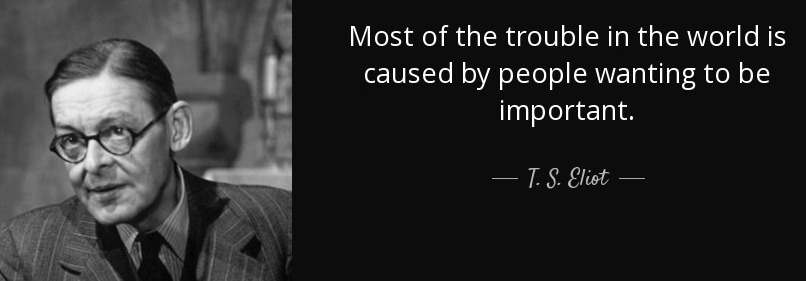
As I mentioned, as a young man at Bible college, though it was not my original purpose in attending, I quickly fell into the group’s dysfunctionally competitive spirit of attempting to win a ministerial post. If I quiet my mind just now, and cast myself back, 50 years ago, to the energies coursing through my person at the time, I can still feel the churning and seething neediness. I wanted to be noticed. I needed someone to tell me that I was competent and able. I craved a Dear Leader’s stamp of approval to feel good about myself.
All this was very neurotic and pathological. As they say, “If you’re not enough without it, you won’t be enough with it.”
Editor’s note: I hate to be the one to break the news, but – if we dream of one day being “discovered,” one’s name in lights, people worshipping, with offers coming over the phone – there’s something really wrong with us. In the ancient work the Iliad there's a Greek word, virtually the central theme of the text – kleos, glory or fame, that is, one’s legacy and hope for immortality. Employed many times throughout the narrative, this term is offered as motivator for the war with Troy; it all worked out so well for them, too. I say there’s something wrong with us because why should we build our eternal lives around what other fallible, “I’m not enough,” human beings might think of us?
Beware of those who laud themselves as desiring to “make a difference.” This phrase is code language for “I am a needy Little-Me Ego who craves attention and notoriety.” Rest assured that the “difference” they intend to make will not accrue to your account.
There’s a line in the Tao Te Ching advising us not to be afraid to become the valley of the world, as, thereby, all things will flow to us. In the same vein, Lao-tzu recommends the virtue of strategic waiting and patience, for, he says, more victories are won by stillness, and preparing for the right moment, than by barging in with forms of violence. But this latter seeming-calculation – Lao-tzu didn’t mean it that way -- could take us in the wrong direction.
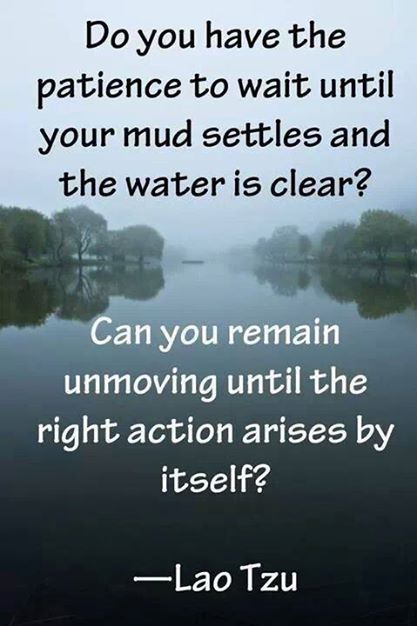
READ MORE - the Krishnamurti lecture of 29 Nov 1959
We don’t need anything from anyone in order to be “enough.” Yes, of course, it’s nice from time to time to receive a word of commendation that one’s work has benefited the greater good, and we’ll never need to turn down the odd accolade, but it all goes wrong when we cannot live our lives without it.
Speaking of forms of violence inspired by a rabid neediness, society is experiencing just now brazen, wanton, in-your-face attempts by totalitarians to impose their will on the general populace. We’ve not seen this so extant in the world since the days prior to World War II. See them now, smugly posturing as moral superior ones, demonizing their opposition, sowing discord and victimhood with their lying propaganda, canvassing for support among the hard-done-by, and trampling upon the time-tested principles which made America the one oasis of liberty in all the sordid history of this bloody planet. All men and women of good will are open to improving the nation, and all men and women of good spirit want the best for all peoples in a just and equitable society, but these neo-totalitarians care nothing for egalitarianism. That’s just cover and empty talk for them, a would-be elite, on their way to power-and-control over our lives.
The new frenzied rabble-rousers would rather burn the country to the ground if they cannot run things. But why? Why not just live a quiet life, enjoying the liberties open to all? But they, within themselves, are unable to do this. Their fevered inner neediness of the dysfunctional ego will not allow it.
And what about us? As I posed the question,
can we be content living in the world as a nobody
We are headed for a new world. In Summerland, at least in the better “neighborhoods,” no one cares about status or looking good or celebrity. These have been left far behind, cast upon the dunghill of egoic insanity; and if they are retained, by this clutching reaction one offers evidence that one is not yet ready to live in a good world.
As we grow spiritually, that is, as our attunement with Divinity strengthens, we notice within ourselves a burgeoning sense of independence, self-sufficiency, and autonomy. We feel, we assess ourselves, to be “enough.” This is not elitism, a spirit of “now I’m better than you.” Far from it; on the contrary, a rising tide of can-do personal well-being prompts us, all the more, to share our joy, the joy of being alive, with the unsighted ones, still caught on lower existential levels of “wanting to be noticed.”
|
|
to be a 'spiritual' person is to align one's heart, soul, and spirit with the Source of Spirit
How do we do this? - see the "simply notice" writing.
|
|
Editor's last word:
As we’ve discussed (here and here), only Consciousness is real, with all manifestations of form as derivative of Consciousness. With this in view, we might define the moral and spiritual person as one having aligned him or herself with Universal Consciousness.
The ancient Spirit-Guide Abu informs us that we entered this world in an undifferentiated state in terms of personhood. We came here to “wake up,” to open our eyes, to become a person in a functional sense, all of which is to grow in consciousness.
While our time on planet Earth is a kind of kindergarten for initial awareness, in a larger sense, our primary purpose will remain the same, no matter how advanced or ancient we become. If Universal Consciousness, and our alignment with it, is the only thing that’s real, then a million years from now our primary aim will continue as drawing closer to the Universal Mind, Universal Spirit, Universal Intelligence.
With this grand purpose in view, we can offer definition of the moral and spiritual person as one having attained a good degree of attunement with Universal Consciousness. A thought or action is “moral” if it encourages this cosmic process of at-one-ment, which is, and always will be, our primary inner purpose; further, one is a “spiritual” or a “good” person if one’s life and essence are in line with God’s mind, Universal Consciousness.
|
|









